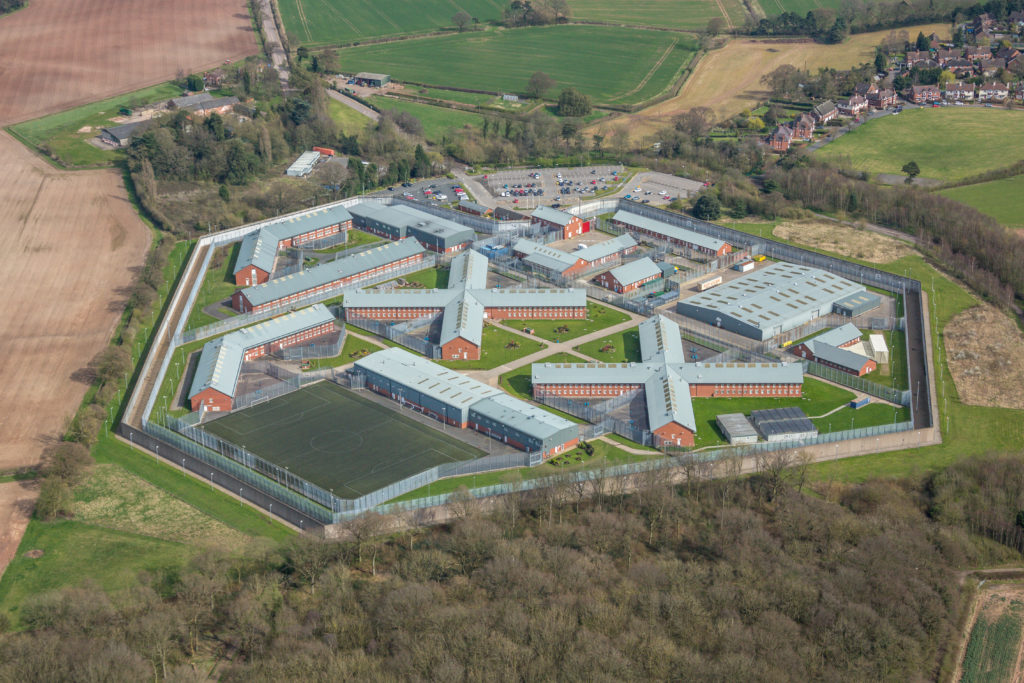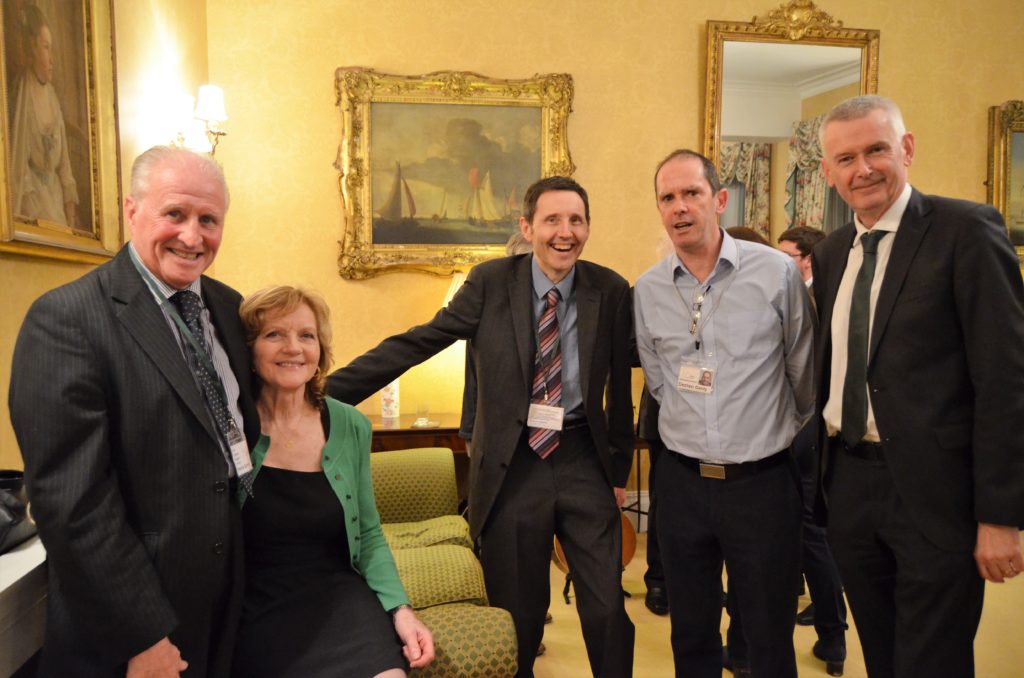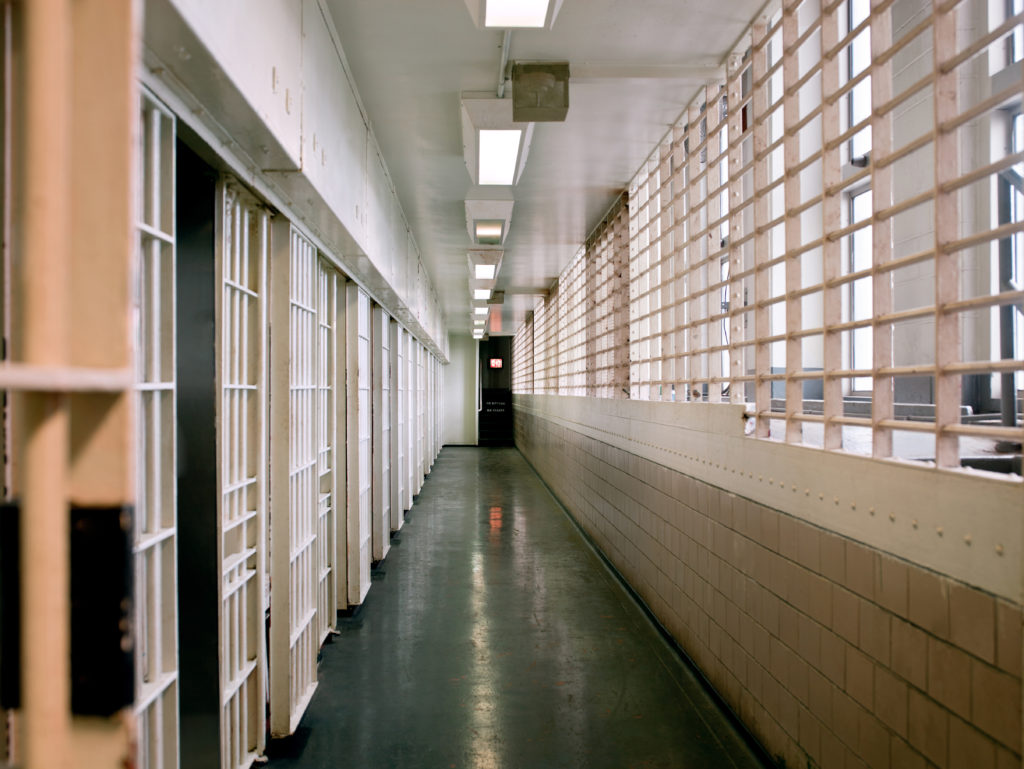WHEN Father Gerry McFlynn was ordained in Ireland in 1973, as the age of twenty-six, he could never have known where his path within the clergy would lead him.
He certainly wouldn’t have guessed that it would see him spend some 28 years outside of his Diocese of Down and Connor in Northern Ireland, working with Irish prisoners in England and Wales.
After his ordination Fr Gerry ministered for five years in parish work, with much of it spent supporting prisoners and their families caught up in the eye of the storm known as the Troubles.
As a local priest, he would regularly visit parishioners in the H-Blocks of Long Kesh prison.
Then he spent time as Chaplain of the ‘Pax Christi’, the International Catholic Peace Movement, before undertaking chaplaincy work in Britain at LSU College of Higher Education in Southampton.
From there he went on to become Chaplain at HMP Wormwood Scrubs and he has now spent many years working with London based charity, the Irish Chaplaincy in Britain (ICB).
Fr Gerry’s good friend is Paul Gavin from Castlebar.
Fr Gerry and the Irish Council for Irish Prisoners Overseas (ICPO) previously helped Paul in his doctoral research, which examined the position of Irish prisoners in the UK in the context of their mental health.
Mr Gavin currently works as a Senior Lecturer in Criminology in the School of Sciences at Bath Spa University and is a board member of Irish Chaplaincy in Britain.
 Father Gerry McFlynn (Picture: Gerry Molumby)
Father Gerry McFlynn (Picture: Gerry Molumby)I, myself, have been a volunteer at Nottingham Prison with the ICB and the first thing I noted in that role was that many Irish prisoners are Travellers or people who associated with Travellers when outside of prison.
Nationally the official figure confirms that 40 per cent of all Irish prisoners in UK jails are Travellers. Having got to know many of them over recent years, I was shocked to find how many have mental health conditions, difficulty with literacy needs and or are vulnerable in other ways.
Many are victims of life experience, family patterns of behaviour and a lifestyle which results in them being subject to police and custodial issues.
Nottingham is a male prison, so I only get to meet young men.
Many who are literally in and out of custody throughout their most formative years and often leaving young families behind them; so, the vicious circle of life behaviour and consequences continues.
Some of those with longer sentences, and many crimes committed under the influence of drugs or alcohol, now find themselves in a mental health crisis.
We hosted a Travellers Awareness Day in 2019 and brought local musicians and storyteller Deirdre O’Byrne into the prison.
The Governor, staff and prisoners all took part and joined in the songs and laughter and the hush while poems were being read.
The Traveller prisoners we visit are also very religious usually, and mostly have a great sense of pride in who they are and their Travelling culture, despite constant societal discrimination.
One prisoner told me: “Wherever we go, as soon as we talk in public, people will turn their heads and just watch us from a distance, I have noticed that since I was a boy.”
 The ICPO makes visits to prisons across Britain, such as this one in Nottingham
The ICPO makes visits to prisons across Britain, such as this one in NottinghamThe ICPO is one of three projects run by the ICB.
The charity’s London office has a small team of three full-time prison visitors/caseworkers plus a full-time caseworker.
With his decades of experience in person-centred chaplaincy, Fr Gerry confirmed my limited experience when he told me: “Travellers in particular, have a difficult time in prison, being routinely discriminated against in terms of jobs and often being the the victims of verbal abuse.”
From their head office in Maynooth, Co. Kildare the ICPO supports these prisoners in a very practical way, as well as providing advocacy support on issues such as repatriation, discrimination, and ill-treatment.
ICPO has a worldwide brief, but Fr Gerry focus on the Irish prisoners in British jails.
I asked Fr Gerry how his work has been affected by the Covid-19 Pandemic.
“Much of this work has suffered greatly during the past year because of the pandemic,” he confirmed.
“Nonetheless, we have managed to provide a pattern of support for prisoners and their families.
“In fact, we have managed to maintain as normal a service as possible except for the prison-visiting which is the backbone of our service.
“We have engaged with prisoners by email, printed off for them and they reply by letter, and keep in touch with their families both here and in Ireland.
“We have also provided them with phone credit to keep in touch with their families and loved ones, sent them games, meditation exercises, pens for colouring books and drawings, mindfulness booklets - everything, in fact, from prayer cards to game and puzzle books to help keep them occupied and mentally stimulated during what has been, and continues to be, a very difficult time”.
Fr Gerry and all the staff have, over the years, have developed a good working relationship with the Irish Embassy staff who greatly value the service we provide.
Fr Gerry regularly meets with staff members to discuss issues like repatriation, licence transfers, discrimination and ill-treatment while incarcerated.
Much of our contact with prisons is via the Chaplaincy Service based in the prisons throughout the UK, who minister to all religions.
Over the years we have developed a good network of Chaplaincy contacts, which has stood us in good stead for arranging visits and checking on prisoner’s wellbeing on issues already mentioned.
In recent years, we have also tried to develop a relationship with the Probation Service despite its present public/private sector makeup.
All this helps hugely when it comes to serving the needs of the prisoners and their families.
“The two most important issues for prisoners at present are repatriation and the transfer of licence, i.e., to serve their long-term sentence nearer families in Ireland or at a prison nearby the family in the UK,” Fr Gerry explained.
“Sadly, the Department of Justice and the Irish Prison Service have been somewhat slack in repatriating prisoners, while the fragmented nature of the Probation Service here has not been conducive to helping with licence transfers.”
He added: “We work closely with our colleagues in Maynooth on these and other advocacy issues.
“I have been singularly blessed in working with a team of truly remarkable people, both here and in Maynooth; people with the professional skills but, above all, the empathy for engaging with prisoners and their families.”
When asked for an overview of his many years of ministry to date, Fr Gerry confirmed that his time spent with prisoners has had the biggest impact upon him.
 The 60th anniversary celebrations for the Irish Chaplaincy Britain organisation were held at the Irish Embassy in London (PIC: Gerry Molumby)
The 60th anniversary celebrations for the Irish Chaplaincy Britain organisation were held at the Irish Embassy in London (PIC: Gerry Molumby)“Working with prisoners and their families has taught me much about how society deals with those who break its laws,” he confirmed.
“Themes like forgiveness and redemption take on a different meaning when one is confronted by real people with feelings and emotions and often learning difficulties, society’s misfits, its underclass, the people who do not count.”
He added: “It has been said that prisoners are the last acceptable prejudice in society.
“They are also among its most marginalised and often despised people.
“Working with them and their families has certainly given me a rare insight into how people at the bottom of society’s pyramid cope with life as well as a cutting edge to my own theological and political thinking.”
Talking with Paul Gavin, he told me that Irish prisoners in general are not too dissimilar from domestic prisoners in England and Wales, in terms of how they experience prison.
They suffer from the experience in terms of missing their family and loved ones, and that isolation and separation from family can result in depression.
A lot of Irish prisoners are foreign national prisoners in that they hold Irish passports only, he explains.
Others are second generation Irish, who were born in Britain, but identify as being Irish, and these prisoners are not considered foreign national prisoners.
Under the terms of the Good Friday Agreement (GFA) Irish people from Northern Ireland can define themselves to be Irish, British or both.
However, upon arrival into prison if you are born in Northern Ireland, you are automatically classified as being British, he adds.
But there is a significant difference in prison experience for Irish people from the Traveller community, Mr Gavin confirms.
 There is a significant difference in prison experience for Irish people from the Traveller community
There is a significant difference in prison experience for Irish people from the Traveller community“Irish Travellers can really suffer in prison,” he says.
“Being locked up is so alien to them in terms of their way of life (nomadism).
“They suffer from a lack of literacy in prison, not to mention the mental health impact.”
He added: “Bullying and discrimination is also a major concern, by prisoners and by staff.
“It is widespread and as a result many do not even identify as being a Traveller when they arrive in prison.”
When I asked Mr Gavin what the impact of decades of prison support and reform carried out by Fr Gerry on behalf of the Irish Chaplaincy and Irish Council for Prisoners Overseas might be, he claimed it has undoubtedly played an important role in the lies of Irish prisoners.
“I have really found Gerry to be one of the most grounded and down to earth people I have ever met,” he said.
“He has such empathy but would not stand for any nonsense and I think this is part of what has made him so important in the lives of so many prisoners and their families.
“He would never judge but he would always be there to listen."

